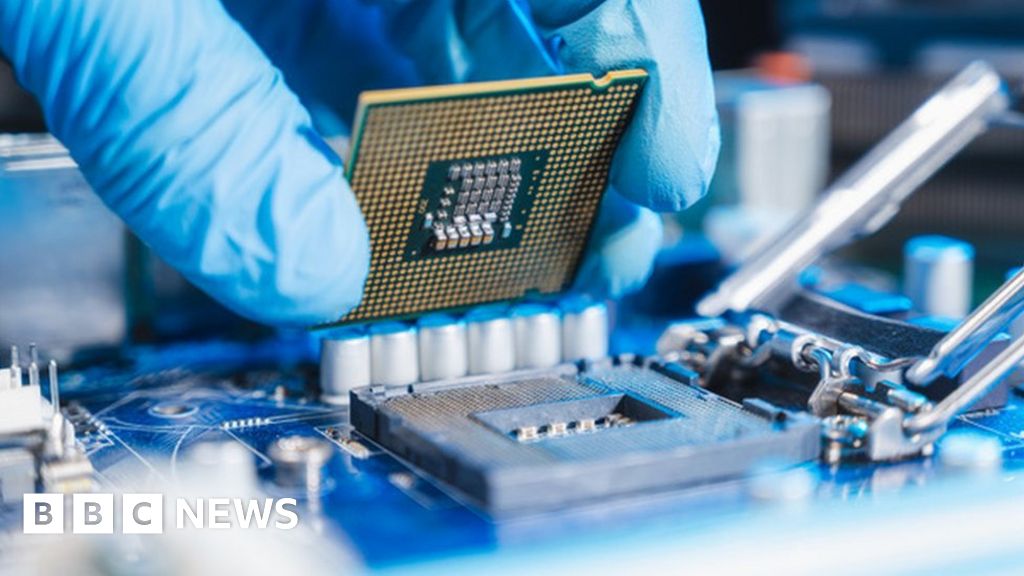- cross-posted to:
- investing@lemmy.world
- cross-posted to:
- investing@lemmy.world
British microchip designing giant Arm has announced it has filed paperwork to sell its shares in the US.
The Cambridge-based company, which designs chips for devices from smartphones to game consoles, plans to list on New York’s Nasdaq in September.
Arm did not reveal the number of shares for sale or the price, but its proposed initial public offering (IPO) could be the biggest listing this year.
In March, in a blow to the UK, the firm opted against listing shares in London.
On Monday, Arm announced that it had now publicly filed a registration statement relating to a proposed IPO. It said the number of shares to be offered and the price range for them were yet to be determined.
But the company is reportedly looking for a valuation of between $60bn (£47bn) to $70bn.
Arm was bought in 2016 by Japanese conglomerate Softbank in a deal worth £23.4bn. Prior to the takeover, it was listed in both London and New York for 18 years.
Its chip design instructions and technologies are used by manufacturers like the Taiwan Semiconductor Manufacturing Company and technology giants Apple and Samsung to make their own chips.
Listing a firm on a stock exchange takes it from being a private firm to a public company, with investors able to buy and sell shares of a company’s stock on specific exchanges.
Reports previously suggested the firm had sought to raise between $8bn and $10bn through the listing on the technology-heavy Nasdaq platform. Other major technology companies including Google, Apple and Facebook trade on the Nasdaq. 2px presentational grey line
What is an IPO?
Private companies, as a way of raising cash, can start a process to list on a stock exchange.
In an IPO companies offer shares to investors before listing.
The price of the shares is typically set by investment banks hired by the company to run the process.
But once the shares start to be publicly traded, prices are set by supply and demand. The value of the shares, multiplied by how many there are, gives the market value of the company. 2px presentational grey line
Arm was founded in 1990 and has been referred to as the “crown jewel” of the UK’s technology sector.
Reports in January said Prime Minister Rishi Sunak had restarted talks with Arm’s owner about listing on the London Stock Exchange.
But the firm said it did not plan to pursue a UK listing, saying the US was “the best path forward”.
The decision raised concerns that the UK market was not doing enough to attract tech company stock offerings, with US exchanges seen to offer higher profiles and valuations.
But Arm’s chief executive Rene Haas has said the company will keep its material intellectual property, headquarters and operations in the UK.
The latest filing shows further intent that Softbank is pushing ahead with the multi-billion dollar sale despite difficult conditions in the global financial markets.
The number of stock market listings has fallen sharply since Russia’s invasion of Ukraine. Shares in major technology companies have also fallen in the wake of the Covid pandemic.
After an acute shortage of semiconductors during the pandemic, the chip-making industry has faced reduced demand.
Arm’s sales declined to $2.68bn in the year ended 31 March, hurt by a slump in global smartphone shipments. Sales for the three months to 30 June fell 2.5% to $675m.



Lol. ARM is a sinking ship because of RISC V. Calling it UK is quite disingenuous. It is owned by Softbank in Japan with major stakeholders in China. The only benefit to arm is with proprietary nonsense.
https://www.bbc.com/news/business-36822806
https://www.wsj.com/articles/softbank-agrees-to-buy-arm-holdings-for-more-than-32-billion-1468808434
https://en.m.wikipedia.org/wiki/Arm_(company)
RISC-V will supercede it. ARM became quite a nasty company in its later years.
Oh well, good riddance.
I just want a chip manufacturer that isn’t gonna bug my home! Hopefully someone comes along, takes the RISC-V specs, and makes a truly open-source chip!
I haven’t been following this lately and thought every cell phone mounts some form of chip designed by ARM.
When I read about the announcement I even started wondering if it would be sound to buy some shares (a tiny quantity, I’m no gambler)
Several people say it’s a sinking ship and so now I’m thinking I’d better be careful with this idea.
Why is it sinking? Could I ask you guys to sum it up or give me a flavor of why that is?
Edit: fixed grammar
There are 2 sides to the discussion of arm imo. On the arm side you have the pros of :
On the RISC V side the pros are :
This is just my knowledge of the discussion, and its a very high level one imo. Feel free to reply and educate me on the subject, specially the RISC V side
ARM is also expanding hugely into the autonomous vehicle space, given the amount of computing required in cars is increasing and low power is very desirable.
RISC-V is an interesting experiment into what an open source ISA looks like, and it is getting funding and interest, but I’d say we’re at least 5-10 years from RISC-V meaningfully competing with ARM’s market share, which it massively dominates currently. It just isn’t a coherent product yet.
RISC V is the first open source Instruction Set Architecture. Everything needed to fab the chip is open source. It is like how Linux dominates the world in enterprise software, RISC V is doing that for chip fabs. ARM is a closed ISA. Making the chips requires paying a royalty to ARM for each chip made. It is a scheme to extract money through manipulation not true competitive innovation or value.
This is like any other market, as soon as an equivalent open source alternative exists, the incumbent extortionist’s days are numbered. Its only customer base is from convenience or ignorance.